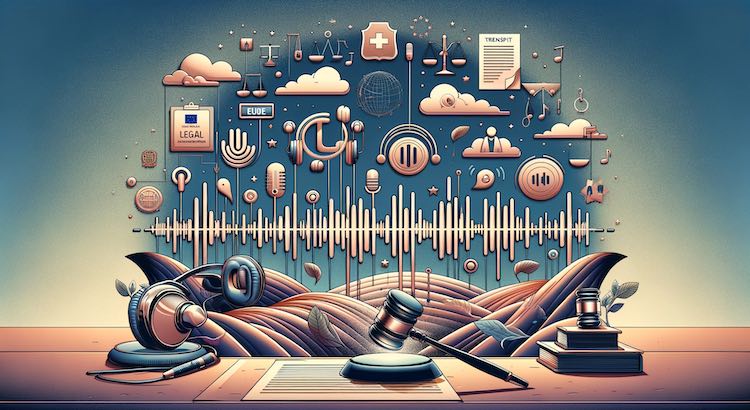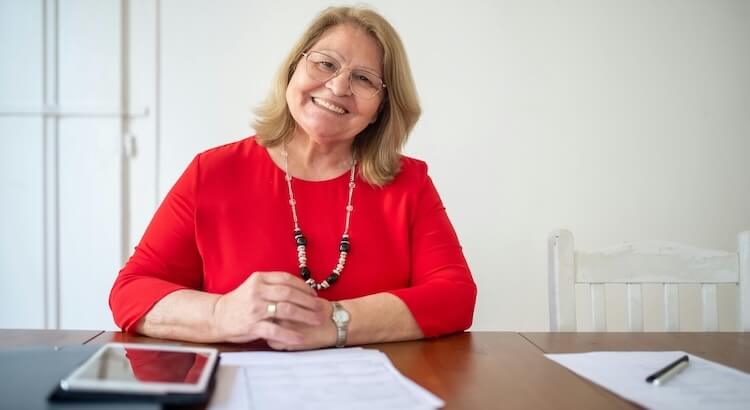Understanding EU WCAG 2025: Legal Risks and the Role of Human Transcription Services
The digital world must be accessible to everyone, including people with disabilities. This isn’t just a moral responsibility—it's required by law. The European Union's Web Content Accessibility Guidelines (WCAG) 2025 introduces stricter measures to ensure that all digital content, including audio, is usable for all users.
With these new standards, organizations risk legal trouble if they do not make their digital resources accessible. Choosing accurate transcription services, such as those from GoTranscript, is one effective way to stay compliant. This article explores the essential points of WCAG 2025, the legal consequences for non-compliance, and how human transcription can help.
What Are EU WCAG 2025 Guidelines?
WCAG 2025 is a set of European Union guidelines designed to make web content accessible for people with disabilities. These rules cover:
- Text
- Images
- Videos
- Audio content
For audio material, organizations must provide accurate written transcriptions. This allows people who are deaf or hard of hearing to access important information (European Commission, 2024).
Key Points of WCAG 2025 for Audio Content
WCAG 2025 focuses specifically on:
- Providing accurate and complete audio transcriptions
- Ensuring that transcriptions match spoken content (including tone and context)
- Making all digital audio files accessible in real time or soon after publication
Legal Consequences of Ignoring WCAG 2025
Failing to follow the WCAG 2025 guidelines can have serious outcomes. In recent years, European enforcement of accessibility laws has become strict (European Disability Forum, 2023).
Potential Legal and Business Risks
-
Fines and Penalties
- Organizations can face heavy fines, which vary across EU member states.
- Penalties are set high to encourage all businesses to comply.
-
Legal Litigation
- Individuals or advocacy groups may file legal cases against non-compliant companies.
- Litigation can mean expensive settlements and legal fees (WebAIM, 2023).
-
Loss of Business
- Ignoring accessibility shuts out entire communities and their supporters.
- Inaccessible content can harm a company’s reputation and reduce its user base.
The Value of Human Transcription Services
There are automated tools that claim to transcribe audio. However, human-based transcription services offer clear benefits. GoTranscript leads in this field, helping organizations meet accessibility standards and avoid risk.
Why Choose Human Transcription Over Automated Tools?
- Higher Accuracy
- Human transcribers pick up subtle details, different accents, and background noise, which machines may miss (Transcription Accuracy Report, 2022).
- This ensures every word in your audio matches the written transcript, reducing potential misunderstandings.
- Context Awareness
- Humans understand tone, context, and intent—not just words.
- This skill is essential for sensitive material, legal conversations, and healthcare information.
- Customization and Compliance
- GoTranscript offers custom transcription features designed for accessibility, including speaker labeling and time-stamping.
- These elements make transcripts more useful for users who rely on assistive technology.
- Data Security
- Handling sensitive audio files safely is essential for compliance.
- GoTranscript enforces strict privacy protocols, so all files remain confidential.
- Support and Expertise
- GoTranscript specialists understand the legal and practical needs of WCAG 2025.
- They can guide organizations through every step of accessibility improvements.
Other Accessibility Solutions to Consider
For total accessibility compliance, consider using:
- Closed caption services for videos
- Subtitling services in multiple languages
- Automated transcription (for basic, non-critical content)
- Text translation services for multilingual content
- Audio translation services for podcasts and webinars
- Transcription proofreading services for complete accuracy
Always check the transcription pricing and captioning services pricing to budget for compliance.
How to Order Professional Transcription or Accessibility Services
- Upload your files and order transcription in a few clicks
- Need captions? Order captions online for fast turnaround
Conclusion: Ensure Compliance and Accessibility with GoTranscript
As the EU moves toward full enforcement of WCAG 2025, every organization must prioritize accessibility. Failing to comply can result in heavy fines, legal battles, lost customers, and a damaged reputation.
Choosing reliable, human-powered services like those from GoTranscript is the safest, most accurate way to meet both the legal requirements and the needs of all users. GoTranscript provides complete solutions for transcription, captioning, subtitling, and more, helping your organization stay accessible, inclusive, and fully compliant with EU law.



















 Verified Order
Verified Order